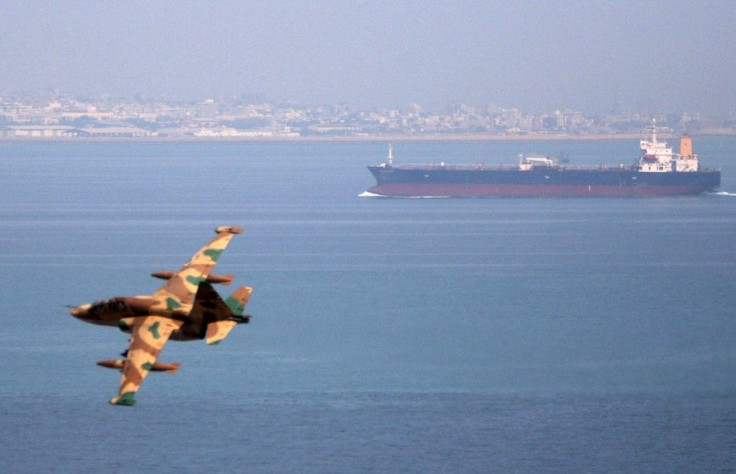European Union Hits Iran With New Oil Embargo

The European Union has approved an oil embargo against Iran in hopes that new economic pressures will convince the country to abandon its nuclear program.
The oil ban is part of new sanctions imposed by the E.U. in Brussels on Monday. The embargo on new oil contracts goes into effect immediately, as does a freeze of Iran's central bank assets. Existing petroleum contracts with Iran will be suspended in June.
This shows the resolve of the European Union on this issue and of the international community, British Foreign Secretary William Hague said in Brussels.
It is absolutely right to do this in view of Iran's continued breach of U.N. Security Council resolutions and refusal to come to meaningful negotiations on the nuclear program.
The E.U. is currently Iran's second biggest oil purchaser after China, and countries like Greece and Italy are particularly dependent on Iran and may feel some consequences from the sanctions. However, E.U. foreign ministers think that the embargo will put enough economic burden on the Islamic Republic to re-start nuclear talks.
The United States also imposed new oil sanctions on Iran earlier this month, although they won't take effect for up to half a year. The measures force other nations to choose to do business with either the U.S. or Iran, but not both.
While the world has come together nearly-unanimously against the idea of Iran obtaining nuclear weapons, there are some fears that sanctions could backfire. Iran has already threatened to close the Strait of Hormuz -- the Gulf shipping port through which nearly 40 percent of the world's oil travels -- and others, pointing to Iraq under Saddam Hussein, worry that the economic burden will be felt most by Iran's already oppressed people, not by the government.
Iran has continually claimed that its nuclear program is for peaceful purposes, but a report from the International Atomic Energy Agency in November indicated that Iran has tried in the past to develop nuclear weapons.
International Dialog
I want the pressure of these sanctions to result in negotiations, E.U. foreign policy chief Catherine Ashton stated.
I want to see Iran come back to the table and either pick up all the ideas that we left on the table ... last year ... or to come forward with its own ideas.
Iran has wavered on the idea of opening an international dialog, simultaneously projecting an open and a defiant front. On Monday, the Tehran Times indicated that Iran was willing to speak to the 5+1 group (the United States, Britain, France, Russia, China, and Germany); however on Friday, the Iranian parliament's chairman Ali Larijani said that talks would never happen if the nuclear question were raised.
© Copyright IBTimes 2024. All rights reserved.





















